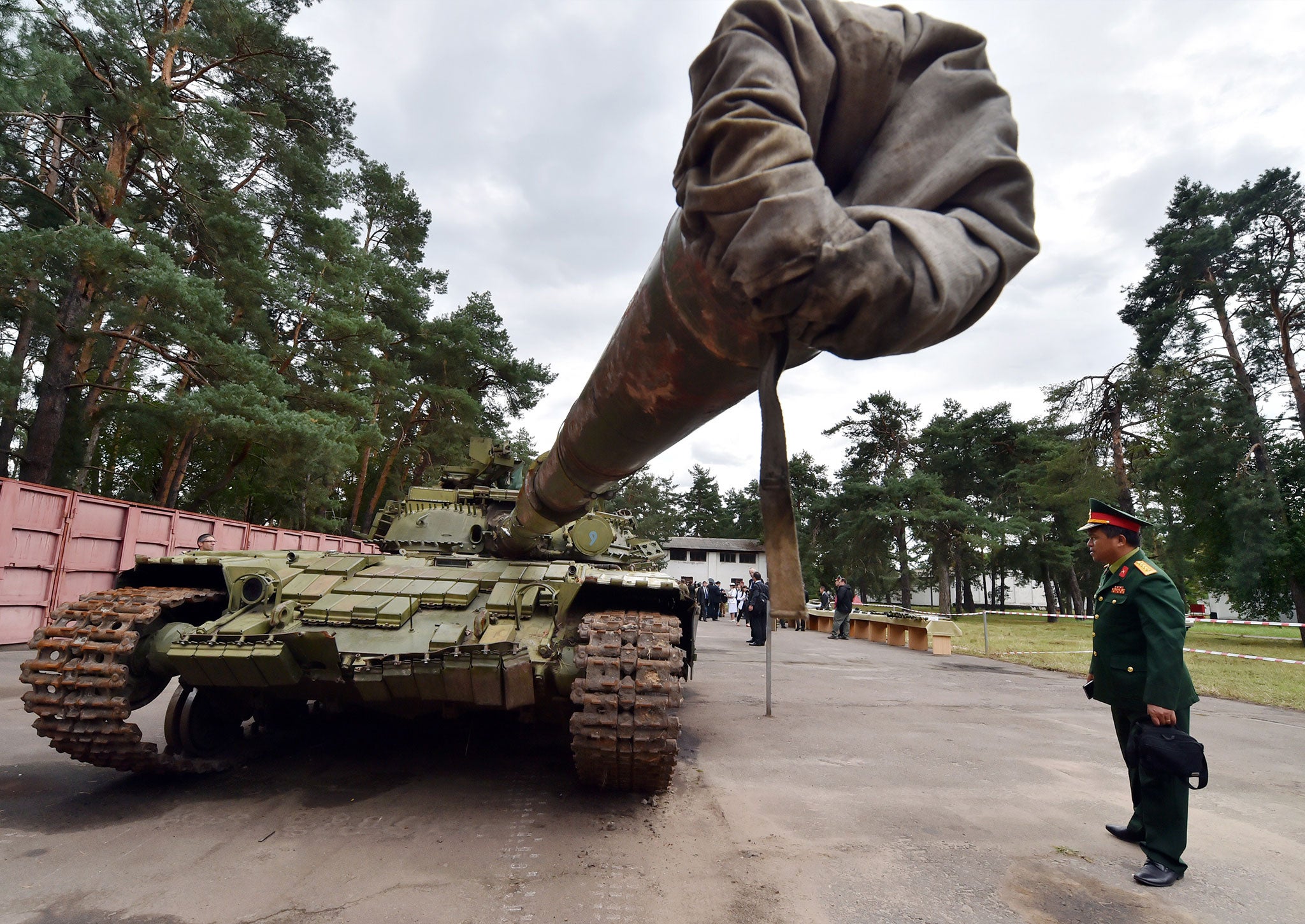How Nato should respond to this Russian ‘incursion’
After stating from the outset that it will not be fighting for Ukraine, the priority will be to project unity and determination


When the planning began for next week’s Nato summit, there was only one obvious, and rather dismal, item for the agenda: how to forge a new purpose for the alliance after the inglorious withdrawal from Afghanistan. That 12-year engagement, however unsuccessful, had kept Nato in business; but there were now different views among the allies about what, if anything, should follow.
Ukraine, in this context, came as a godsend. The overthrow of President Yanukovich in February, and the East-West contest for Ukraine that ultimately underlay it, offered the supreme diversion. Suddenly, there was a new front line to be defended in Europe, and Nato could claim a new purpose that was, in fact, the old purpose: keeping an aggressive Russia in check.
Relief can be detected in Nato statements since then, along with the sort of ideological clarity that comes from revisiting the Cold War. Next week’s summit is now being described as “one of the most important in Nato’s history” (the Nato Secretary General, Anders Fogh Rasmussen), taking place “at a pivotal moment” (David Cameron).
And so it is, but not necessarily to beneficial effect. The focus on Ukraine might be a godsend for Nato organisationally, but it may not be such a good thing for the organisation in the long term or, more to the point, for the security considerations that remain the reason for its existence. And this is for two reasons.
First, it allows the alliance to avoid drawing lessons from the multiple debacles in Afghanistan, starting with the whole concept of nation-building. The failure of the Afghan presidential election to produce a result only underlined the folly of trying to impose Western-style democracy elsewhere.
Without Ukraine, the usefulness of “nation-building” would have had to be confronted next week in Wales, along with the advisability of more “out of area” operations. If Nato aspires to be a cash-strapped global policeman, it should say so, and reconstitute itself accordingly. Ukraine means that it hardly needs to confront the “what next” question. It can turn back to Europe and busy itself with big bad Russia’s misbehaviour instead.
And this is the second reason for taking a more critical look at the focus on Ukraine. The conflict in Kiev has allowed Nato to slip back into the embrace of familiar Cold War certainties more than 20 years after they ceased to be valid. Nostalgia is not a fault unique to President Putin.
Ukraine constitutes the true borderland between Russia and Europe. This was recognised in 1994, when the UK, the US and Russia gave a joint guarantee of its security in the Budapest memorandum. With Russia’s annexation of Crimea in April, that guarantee turned out to be worth no more than the paper it was written on. But the conclusions that were drawn have left much to be desired.
Russia’s action was seen as a politically inspired land grab, not a crude quest for security, and the response was political rhetoric and economic sanctions, which reflected no understanding of Russia’s fears. The Nato summit, by its nature, risks making this worse.
After Nato made it known from the outset that it will not fight for Ukraine, the priority will be to project unity and determination. There will be fierce words, and perhaps some deeds. The Baltic states and Poland want a permanent military presence on their territory; the French and Germans do not, partly because that would breach the terms of the 1997 Nato-Russia agreement.
A fudge is being cooked up on this, as on the other likely point of dispute: Kiev’s intention, confirmed yesterday, to apply to join Nato. This is likely neither to be ruled out or in. As a way of antagonising Russia, however, any talk of Ukraine in Nato would be second to none. For Russia, the expansion of Nato is what the Ukraine crisis has always been about. The proposed EU association agreement was seen by Moscow as a stage in that process, and the fall of Yanukovich as a Western attempt to accelerate it.
How might relations with Russia have developed had Nato been dissolved after the Soviet collapse? As it was, the pleas of the Baltic states and former Warsaw Pact members for Article 5 protection against their old enemy breathed new life into the alliance. That the fear might be reciprocated, and to destructive effect, was apparently not part of Nato’s calculation.
Any reconsideration of early post-Cold War history will be hard to find on Nato’s summit agenda. Yet it is in decisions taken in the 1990s that the roots of today’s Ukraine conflict must be sought, and in Nato’s archives where, one day, they will be found.

Join our commenting forum
Join thought-provoking conversations, follow other Independent readers and see their replies